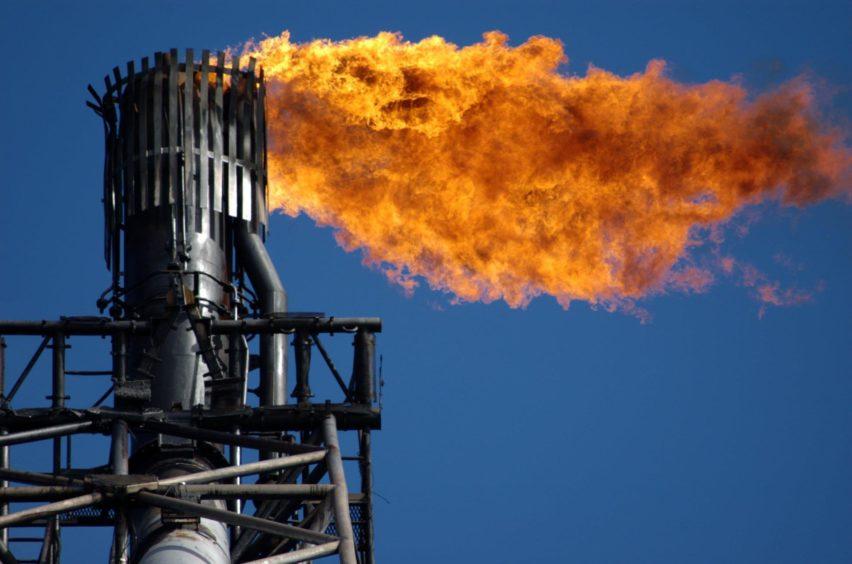
The phrase “Energy Transition” is now a central theme in climate change terminology, but transition to what energy sources and over what time period?
In its Energy White Paper of 2020, the government committed the UK to a target of net-zero greenhouse gas (GHG) emissions by 2050.
The Climate Change Committee recently confirmed the UKs commitment to a 68% reduction in emissions by 2030 compared to 1990 emissions level.
The government has outlined a 10 point plan to achieve its ambitious targets, focusing on further development of renewables (wind & solar), hydrogen production (green & blue) and nuclear power.
The UK upstream oil and gas sector accounts for some 4% of total UK GHG emissions but the government ambition for net-zero emissions from the North Sea by 2050 will inevitably influence future production plans.
The combination of three factors: (a) costs of achieving upstream emissions reductions, (b) ageing North Sea assets that require increasing OPEX and (c) uncertainty in future oil and gas demands, make for difficult investment decisions for North Sea operators – not least avoiding owning stranded assets in the years ahead.
The government recently published its North Sea Transition Deal (NSTD), seeking to reduce GHG emissions in the offshore oil and gas sector mainly through reductions in venting and flaring and electrification of production processes.
Set against a 2018 baseline, NSTD targets correspond to a reduction in production emissions of 10% in 2025 and 50% in 2030 on the pathway to net-zero emissions by 2050.
By focussing on ways of reducing flaring and venting, the initial challenge of a 10% reduction by 2025 seems feasible, but an emissions reduction of 50% by 2030 – less than nine years hence – will be challenging.
As for electrification of production processes, the NSTD estimates that £2-3 billion of investment will be required just to complete one or two electrification projects.
Does any North Sea operator even have FEED plans and policies in place to meet emissions targets or implement electrification of offshore production?
The offshore industry is rightly proud of its innovative engineering, floating offshore wind (FOW) platforms being a recent example, and no doubt will again rise to the challenges – but time is against us.
Many would say that fossil fuels, such as oil and gas, should have no role in future energy production.
However, until we have replaced them with sustainable and affordable alternative energy sources we must manage the pace of this transition, balancing the need to reduce emissions with the need to maintain energy security.
Until we achieve that balance, we cannot simply switch off our reliance on oil and gas.
Some idea of the scale of the challenge can be seen from the fact that in 2019, 40% of UK electricity was gas powered whereas wind & solar power generated only 24% of our electricity needs.
Hydrogen is promoted as a clean solution to future energy production needs, but what sort of hydrogen?
“Green hydrogen”, produced by electrolysis using renewable energy is emissions free but inefficient to produce, whereas “blue hydrogen” produced using steam reforming of natural gas creates carbon emissions.
Carbon Capture Storage (CCS) technology is promoted as playing a crucial role in reducing carbon emissions.
However, despite extensive research into CCS technology, there are still very few commercial plants in operation and, furthermore, it is reported that to date they have captured far less CO2 than the UK emits in a year.
Nearly 70% of these CCS plants rely on revenue from selling CO2 for Enhanced Oil Recovery (EOR) – in other words to extract more fossil fuels – so their commercial viability is intrinsically linked to a fluctuating oil price which is forecast to drop in the long-term.
Probably the only way to make CCS economically viable is to find new markets for captured CO2 and incentivise the market with higher carbon prices.
Despite such concerns, the NSTD claims the UK offshore sector will invest £2-3bn to build a Transport & Storage infrastructure for at least 10MT/y of carbon capture by 2030.
BP is planning to build a “blue hydrogen” plant on Teesside processing natural gas, with a capability to capture and send for storage some 2MT/y of CO2, but the plant will not come onstream until 2027.
The production of hydrogen is an inefficient process. Hydrogen operating costs will be inherently higher than natural gas and are at a higher investment risk level given the immaturity of the technology and production step-change needed.
Rosen UK has conducted a number of studies in the US, UK and Europe into the pipeline material requirements and integrity implications of blending increasingly greater concentrations of hydrogen into existing natural gas networks.
Along with colleagues from other consultancies, we also have a role in reviewing evolving hydrogen pipeline standards.
There is some way to go before hydrogen in pipelines becomes a reality, so natural gas is likely to remain an essential component of our energy needs for some time to come.
There is no doubt the oil and gas industry is under increasing pressure from governments, investors, and the public to decarbonise its operations.
In turn, financial markets have become sceptical about investing in the sector as there is increasing uncertainty over the future growth case for oil and gas.
It is notable that when Sir Ian Wood, a stalwart of the oil and gas industry, was recently asked where he would choose to invest today, he paused and then said “in renewables”.
Setting targets is the easy bit – meeting them is the challenge. Aspirations are not enough – we need policies, strategies, technologies and above all leadership to manage a phased energy transition that “keeps the lights on” without imposing punitive taxes.
Unfortunately, with less than nine years to meet a UK wide 68% emissions reduction target, this energy transition is going to have to take place at an unprecedented pace and will require substantial levels of investment and government support.
Going green is not free. One way or another, each of us will pay a price for transitioning to greener energy, but failure to decarbonise is likely to cost the earth.
Ian Diggory, a 40-year industry veteran and principal consultant for Rosen UK, formerly of Macaw Engineering, discusses supply chain issues relating to the North Sea energy sector.
Recommended for you

